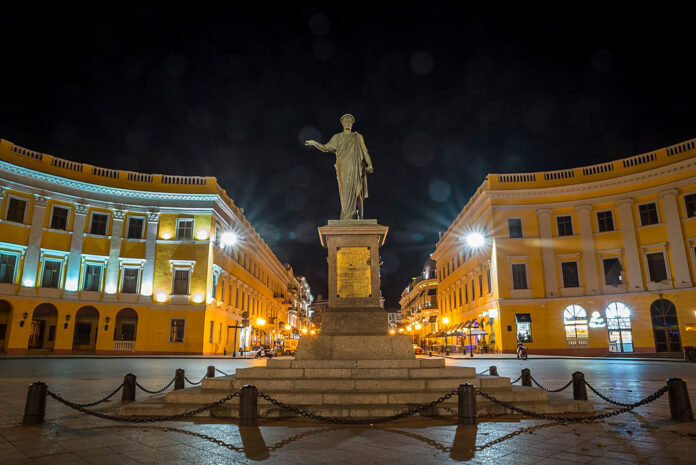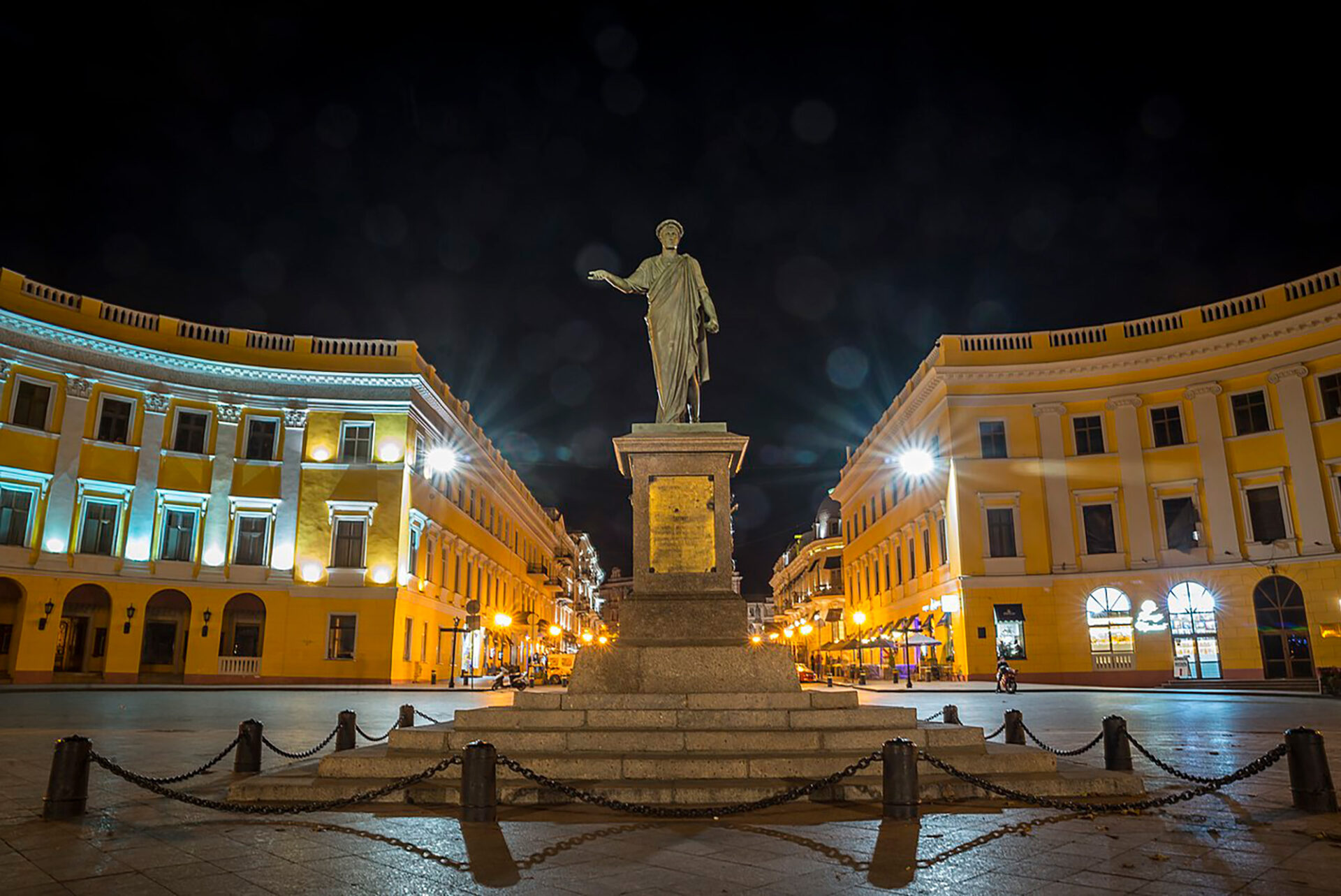According to this French historian, the image of an almost monolithic Putinist system now turns out to be an illusion. Putin has prevailed because he promises two things: fabulous wealth for those who serve him, and the restoration of Russia as a great power. Today, however, he has wrecked any chance of economic prosperity, and equally damagingly, has exposed Russia’s so-called return to great power status to be a bluff. Many signs indicate the “Putin consensus” is crumbling. There is talk of the emergence of a “Peace Party”. Yet the central issue over which two groups of the Russian elite are split is the policy of a break with Europe: the unconditional Putinists support a “pivot to China” and the “systemic liberals” educated by history, have understood that, without Europe, Russia is doomed to sink into insignificance.
Today, instead of the “Putin consensus”, we are witnessing the slow crystallization of two groups. Opposed to the unyielding Putinists are the networks of “systemic liberals” and “intelligent imperialists” (they do exist) both of whom who are conscious of the regime’s catastrophic trajectory. This group includes heavyweights such as certain oligarchs (leaked telephone conversations attest to their highly critical attitude towards the “national leader”) and the “siloviki” (security services and military) if we are to believe the political scientist Valeri Soloveï. He has become a virulent Putin critic, regularly emphasizing in his YouTube videos that many FSB officers are unhappy with the president’s policies and that the FSB is the only organization capable of ridding Russia of its deranged dictator. The very fact that Soloveï can make such bold statements indicates that he must have powerful friends in high places.
This group has emerged only recently. It believes that the calamitous Ukrainian adventure must be ended as soon as possible, sanctions lifted and bridges with the West restored. Even on Russian television and on YouTube, people who were once in favor of intervention in Ukraine, such as Konstantin Zatulin, First Deputy Chairman of the State Duma Committee for CIS Issues, Eurasian Integration and Relations with Compatriots, acknowledge that none of the announced objectives have been achieved and Ukraine will continue to exist. As Zatulin states “We don’t have enough forces to overpower it, given the support it receives”. He advocates a return to the policy of subversion: “We must propose another path […], intelligent propaganda, correct behavior, a better attitude towards those who have ended up inside on our territory”.
Another example is Alexander Kolpakidi, a historian of the Russian secret services and keen supporter of “eradicating fascism in Ukraine” who regretted that “this had not been done in 2014”. He rebuked those who threaten the West with a nuclear strike: “I don’t think we will find evildoers in the West […] who want to destroy the planet. […] I wonder if those making such remarks realize what they’re saying, or if they’ve completely lost their minds. They’re totally crazy […]. And they expect to go to paradise, with their mistresses, their illegitimate offsprings, their dirty money! […] Do they think by any chance, that all these threats of nuclear apocalypse will leave no trace and be forgotten? […] How could it have come to this? In Soviet times, we were leading the way, building a new world, and now what do we look like? […] We’re no longer a model for anyone. The problem is that for a large part of the Ukrainian people, our country is not an ideal. We are champions only in thieving and lying […]. Our policy oscillates between idiotic threats and an obvious willingness to negotiate peace. […] For 23 years, we were told that we had the most powerful diplomacy in the world, that the economy might leave something to be desired but that, when it came to foreign affairs, we were unbeatable… Now we blush with embarrassment even before the Chinese, who never expected things to turn out this way…”.
The even more outspoken Boris Nadezhdin, Director of the Institute for Regional Projects and Legislation, suggested on the NTV channel that Russia should rebuild normal relations with Europe. He nevertheless stressed, “under the current political regime, we won’t be able to return to Europe. All we need to do is choose another president to build a normal relationship with European countries and everything will fall back into place. The presidential elections take place next year. I won’t say any more.” In short, more and more voices are calling for the “special military operation” to be abandoned.
Despite raving about the supposed success of the “import substitution” policy, the Russian elites have gradually been forced to face the facts. Without Europe, the Russian economy is regressing and wasting away. Oligarchs and even wealthy Russians cannot enjoy their fortunes. Farewell to the villas in Florida, the yachts on the Côte d’Azur, the palaces in Tuscany, the stays in Courchevel. Middle-level apparatchiks recall with nostalgia the pre-February 24th, 2022, era, when they could shop in Milan and bask in the sun in Cannes. They realize that the pivot to China was a dangerous illusion, with Beijing only intent on exploiting its weakened partner. Worse still, they are aware that Russia’s military capability has been seriously damaged by sanctions.
Many Russians tacitly feel that their country is dependent on Europe and that flirting with the “global South” will bring Moscow little more than meagre gratification of its vanity. If Soloveï is to be believed, the nascent “party of peace ” is unanimous on one other point. No armistice is possible if Putin is in power. At the same time, opinions diverge on the sacrifices for the armed conflict to end and, above all, for sanctions to be lifted. Few are prepared to go back to the borders of February 24th and none envisage returning Crimea to Ukraine. There appears to be a full consensus on that point.
As the swelling protest gathers pace, the core of die-hard Putinists is seeking ways to counter-attack. Putin himself is back in public view, worried that Prigozhin has eclipsed him in the news. Sergei Karaganov’s article “A difficult but essential decision”, published on June 13th, 2023, is intended as a manifesto for these die-hards of the Russian president and his hardline stance. According to Karaganov, Ukraine’s return to Russia’s orbit was only the first phase in an awesome process of redistribution of power among the world’s elites. This first phase was supposed to include the expulsion of Americans from Europe and the establishment of Russian hegemony from the Atlantic to the Urals. But then the West consolidated, and the elderly Karaganov returned to the ideological folds of his youth, ranting about an “aggravation of the class struggle” on a global scale, with Russia showing the way to the emancipation of peoples who had suffered from “500 years of Western exploitation”. This is a remake of Stalin’s thesis according to which the resistance of classes condemned by history becomes ever fiercer as socialism succeeds.
For Karaganov, Russia has only one way out of the Ukrainian quagmire: to subdue the West so it stops helping Kyiv. The problem, he explains, is that the West is no longer afraid of Russia. Consequently, “we need to restore the instinct for self-preservation it has lost […]. The enemy needs to know that we are ready to launch a pre-emptive retaliatory strike for all its current and past aggressions, in order to prevent a slide into global thermonuclear war. […] I have said and written many times that if we devise the right strategy for deterring and even using nuclear weapons, the risk of a “retaliatory” nuclear strike, and indeed of any other strike on our territory, can be minimized. Only if a madman sits in the White House, a madman who also hates his country, will America decide to carry out a strike ‘in defense of’ the Europeans, leading to retaliation and sacrifice, for example, Boston for Poznan. […] But what if they don’t back down? What if they’ve completely lost the instinct for self-preservation? Then we’ll have to hit a group of targets in a number of countries to bring those who have lost their minds back to their senses.” And all this in the name of what? A “bright future” where Russia can make its “pivot to Asia”, hiding behind China’s back, after rendering the grateful world the priceless service of ridding it of the West’s age-old oppression?
Thus, the differentiation process we are starting to observe in Russia is, on the one hand, between those who share the Russian president’s delusional vision and try to consolidate it with an ideological framework derived from a blend of Sovietism and Slavophile Messianism, resigning themselves out of hatred for the West to subjugation by China, and, on the other hand, those with their feet firmly on the ground and still able to discern causes and their consequences. In this context, Prigozhin would be more attuned with the second group, even if he gives the impression of being a loose cannon able to be used by both. It is noteworthy that dissonant notes can be heard within the first group. While all wish to put the country on the path to total war until victory, some are reluctant to use the nuclear threat.
Can the empire do without Europe?
The real division is over the question of relations with Europe. But let’s not kid ourselves. Critics of the policy of breaking away from Europe are by no means converts to European liberal democracy. Their positions suggest that they have not learned the real lessons of today’s tragedy. For there is a huge gap between denouncing Putin for his crimes — which would lead to an in-depth inquiry into the Kremlin’s entire policy since the 2000s — and the disappointment after the setbacks suffered in the last sixteen months and frustration caused by Russia’s isolation. Let’s not forget that even the ultra-patriots don’t mince their words when talking about Putin’s inability to assume his role as commander-in-chief. The attitude of the “Peace Party” to the question of evacuations from Ukrainian territory shows that there is no fundamental rift with Putinism. These apparatchiks and oligarchs want Putin himself to be replaced, as an effective foreign policy cannot be conducted when the president is unable to show himself abroad, which is the case for Putin. For them, it’s a question of saving or restoring the foundations of Russian power, the sale of oil and gas to Europe, and scope for attracting investment and technology from Europe, notably to modernize the army. They dream of returning to the golden age of Putin’s first terms in office.
Their difference with the Putinist core also lies in their idea of empire. The Kremlin is obsessed with the country’s demographic decline, believing that a depopulated country must renounce its imperial ambitions. Without Ukraine, “Russia is a trunk without arms and legs”, as Igor Girkin once said. In 2021, the ultranationalist writer Zakhar Prilepin emphasized the demographic gain that would result from annexing Donbas: “In 2020, Russia’s population will have decreased by 500,000. If Russia takes the republics of Donetsk and Luhansk into its fold, we’ll make up for all the losses of last year, this year and, in short, we’ll increase our population. Four million new Russians.”
What will these “new Russians” be used for? Putin’s conception of imperial policy dates back to the 16th century. It consists of setting up garrisons in conquered territories or on the margins of the empire, with a view to future conquests. Russia has always co-opted, conquered or allied peoples as part of its expansion policy. Thus, the Zaporozhian Cossacks were transplanted to the Kuban region by Catherine II and used to conquer and subjugate the Caucasus. Today, Chechens defeated by Putin in 2005 are deployed in Ukraine to serve as “janissaries” [Editor’s note: elite infantry units of Ottoman Sultan’s household troops] for the occupying authorities. Men from the Donbas annexed by Putin are sent to the front as a priority, to the point where blood-soaked Donbas has become “a region without men”. In this anachronistic view, Ukraine is seen above all as a reservoir of future soldiers for the “Russian world”: hence the abduction of Ukrainian children and their systematic Russification.
But a different idea of imperial expansion exists in Russia emphasizing cooperation with European countries (without neglecting military resources). Educated Russians know deep down that the Russian Empire was built as a great power thanks to the contribution of many Europeans. Peter the Great invited hundreds of Dutchmen to work on his fleet. The Admiralty shipyard welcomed famous Dutch and English shipbuilders. Catherine II, under whose reign the Russian Empire underwent a prodigious phase of expansion, was a German princess. The Baltic Germans provided invaluable cadres for the Russian army and administration. The case of the Ukrainian provinces now claimed by Putin is a perfect illustration of the benefits Russia derived from co-opting European elites to build its empire. In 1803, Tsar Alexander I appointed the Duc de Richelieu, a French aristocrat who had fled the revolution, as governor of Odessa. Historian Alfred Rambaud explains: “In 1805, he appointed him governor-general of New Russia, i.e. the region stretching from the Dniester to the Caucasus, including the countries of Odessa, Kharkiv, Kherson, Ekaterinoslav, Crimea, Kuban and the Caucasus coast. It was a whole empire, the very one over which Richelieu had seen Potemkin reign with the pomp and nonchalance of an Oriental despot, and which he was now to govern with the simplicity, energy and probity of a European administrator educated in the economic doctrines and philanthropic ideas of 18th-century France. Whereas his predecessor had maintained the traditions and customs of Asia, he was to introduce Western civilization.”1
“Adopting Catherine’s traditions, Richelieu issued a call to French settlers, essentially from Alsace, and German settlers, essentially from Württemberg. The turmoil in the Turkish Empire generated flows of Greeks, Romanians, Bulgarians, Armenians… […] He protected [the Crimean Tatars] from the suspicions of the Russian government. During the war in progress against the Turks, the Russians had contemplated disabling the Tatars by taking away their horses. This would have ruined the Tatars. It’s worth noting how warmly Richelieu pleaded their cause with General Viazmitinov, Minister of War…”. At the time of the Russo-Turkish war of 1810, “Richelieu obtained from his government that trade would not be interrupted. He showed how the grain that Odessa no longer exported would be brought to Constantinople by the ships of other nations; how among Turkish subjects, it would above all be the Christians who would suffer from this measure; how Russian traffic there would register a net loss, without any political compensation. For most of the war, while fighting continued on the Danube, merchants from both empires traded peacefully in the port of Odessa.“2
But by February 1811, Richelieu became aware his work was in jeopardy, writing to his sister: “Poor Odessa! Poor country on the shores of the Black Sea, to which I flattered myself I would attach my name in a glorious and lasting way! I fear they will lapse into the barbarity from which they were only just emerging. What an illusion it was for me to want to build in a century of ruin and destruction, and to found, the prosperity of a country when almost all the other countries are the scene of misfortunes which, I fear, will soon be upon us!”3
Richelieu feared that Russia’s imperialist ambitions, the main obstacle to an armistice with Turkey, would spoil everything, and pleaded for a swift peace with Constantinople, expressing his concerns to Tsar Alexander: “The continuous relations we have with Constantinople confirm me in the opinion I had that the Turks will never consent to peace on the terms we demand. This is a fact which can no longer be doubted, any more than the indefinite extension of a war which occupies six divisions and costs Your Majesty annually, through disease alone, a third of the men employed in it. […] If you are seen to be strong and free of any concerns, France will respect you, and Austria and Prussia will regain a little confidence. What benefits, Sire! And could they be outweighed by the sad advantage of acquiring the devastated Wallachia, giving yourself a very bad military frontier and embittering the Turks forever?”4
Lastly, Rambaud made this assessment of the Duc de Richelieu: “Although he made his conquests not against the enemy, but against the desert, he deserves to take his place among those who made the empire great. Two of the monarchy’s eight universities, Odessa and Kharkiv, trace their origins back to him. This Frenchman was one of Russia’s great statesmen.”5
This is in stark contrast with what is happening today in the occupied territories. Astonishingly, even previously fanatical Z patriots are beginning to have doubts about the benefits brought to the “new territories” by integration with Russia. In a remarkably frank report, blogger Maxim Kalashnikov, who is close to Girkin, met with Donbas inhabitants in their ruined villages, such as Tochka, which once had 4,000 inhabitants and now has just 170, 60 of whom are unemployed. The village was shelled by Russian artillery. Kalashnikov recalls being challenged by a villager: “What have you liberated us from? Our homes? Our jobs? Our lives?” Indeed, says Kalashnikov, “there’s no electricity, no gas, no pipes. There are no means of subsistence. Humanitarian aid arrives once a month… To get papers, you need a Russian passport. But how do you do that? No photo booths. People can’t afford a cab to the town… We aren’t freeing them, we are punishing them. […] We tell them: everything is mined and we don’t have the means to clear the mines. People are going through hell in an apocalypse… If it goes on like this, everyone will flee the Russian world like the plague… You can’t fight a war like that. Instead of liberated territories, we’re leaving a scorched earth zone.” Kalashnikov describes the drinking and brawling, the looting as Russian soldiers take from the survivors their meagre possessions. In short, “What did we bring with us? What do we want to substitute in place of Euro-integration, the liberal model that exists in Ukraine? What is this war for?”
The Europeans not only helped the Tsars to structure and administer their empire. They even formulated the empire’s ideology. They also contributed to Russian expansion in Europe. Germain de Lagny, an almost forgotten French observer of Russia, wrote a remarkable analysis of how the Russian Empire expanded thanks to “moral and material collusion on the part of Europe”. It was the Europeans who opened up “all the avenues which, alone, Russia would certainly not have been able to go down […]. We find Russia colluding with one or other state, aiding and abetting projects to satisfy its own ambitious plans. While Germany today dreads Russia’s strength and power, it is Germany that has worked hardest for the rapid growth of this northern giant”6. The French observer cites other examples. Austria came up with the idea of partitioning Poland in the (vain) hope of distracting Russia from Crimea and the Danube provinces (1772). To appease Tsar Alexander I, Napoleon “served up Finland to him”, Finland being wrested from Sweden in 1809. Basically, the Ribbentrop-Molotov pact was another illustration of Lagny’s thesis. It was Germany that gifted Stalin the Baltic provinces.
Russia’s entire historical experience shows that the Europeans played an essential role in maintaining, stabilizing and expanding the Russian empire. Indeed, it was when the cosmopolitan nature of the Petersburg bureaucracy was increasingly challenged by Slavophiles, under Alexander III and Nicholas II, that the empire entered a crisis that would lead to its collapse in 1917. As Lagny writes, “everywhere and always, Russia has borrowed help from its neighbours. Alone, it has undertaken nothing, achieved nothing.”7 Part of today’s Russian establishment is becoming aware of this bitter truth. It is felt that Putin’s policy of breaking away from the West is undermining the very foundations of Russian power. That in turn is driving this group towards rebellion and more or less covert attempts to sound out Western elites.
The post-Putin era will remain imperial
It is a constant in Russian history that considerations of state power always prevail. That’s why we can predict that, after various twists and turns, the “systemic liberals” will find themselves back in charge. It is they who will set the limits for the future “deputinization” of Russia. We will likely see a denunciation of the “cult of personality”, a thaw with the release of political prisoners, a return to dialogue on strategic arms control, while Putin’s successors will try to preserve the Kremlin’s levers of power, control financial flows and manage resources from the centre. They will pursue the same goals of destroying the Ukrainian nation and softly vassalizing Europe, having learned the lessons of twenty-three years of Putinism, namely as much as corruption and subversion work, threats and intimidation are counterproductive. Let’s hope Europeans don’t forget the lessons of Moscow’s horrific war to dominate Ukraine and Europe, and don’t rush back to serve the Kremlin’s unchanged ambitions.
She has a degree in classical literature and spent 4 years in the USSR from 1973 to 1978. She is an agrégée in Russian and teaches Soviet history and international relations at Paris Sorbonne.




